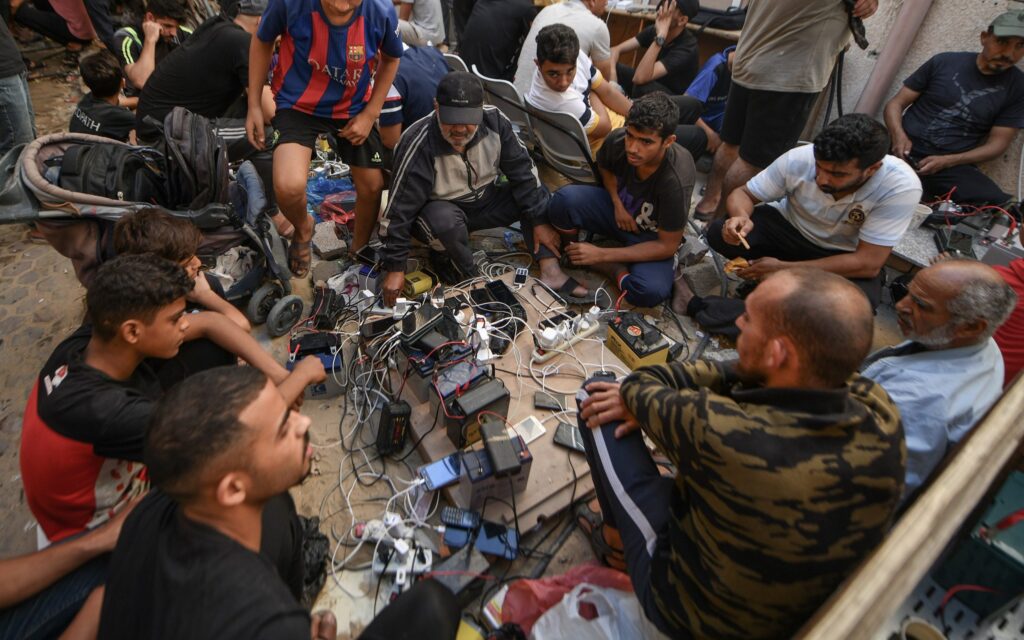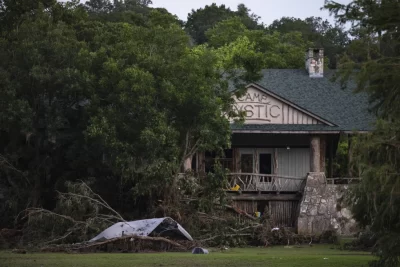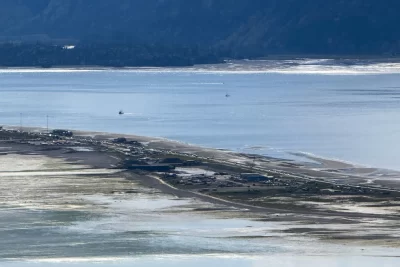
Two days after cellular and internet service abruptly vanished for most of Gaza amid a heavy Israeli bombardment, the crowded enclave came back online Sunday as communications systems were gradually restored.
That’s a welcome development for Gaza following a communications blackout that began late Friday as Israel expanded ground operations and launched intense airstrikes that illuminated the night sky with furious orange flashes. A rare few Palestinians with international SIM cards or satellite phones took it upon themselves to get the news out.
By Sunday morning, phone and internet communications had been restored to many people in Gaza, according to telecommunications providers in the area, Internet-access advocacy group NetBlocks.org and confirmation on the ground.
After weeks of a total Israeli siege, Palestinians in Gaza felt the vise tightening. Social media had been a lifeline for Palestinians desperate to get news and to share their terrifying plight with the world. Now even that was gone. Many were consumed with hopelessness and fear as the Israeli military announced a new stage in its war, launched in a response to a bloody cross-border attack by Hamas on Oct. 7, and troops crossed into Gaza.
Exhausted and afraid her link to the world could drop at any moment, 28-year-old Palestinian journalist Hind al-Khoudary said the massive airstrikes that shook the ground exceeded anything she had experienced over the past three weeks or any of the four previous Israel-Hamas wars.
Residents on Saturday darted across dilapidated neighborhoods under heavy bombardment to check on loved ones. Medics chased the thunder of artillery and bombs because they couldn’t receive distress calls. Survivors pulled the dead from the rubble with bare hands and loaded them into cars and donkey-drawn carts.
“It’s a catastrophe,” said Anas al-Sharif, a freelance journalist. “Entire families remain under the rubble.”
Reached by WhatsApp, freelance photojournalist Ashraf Abu Amra in northern Gaza said panic and confusion surrounded him.
“It’s barely possible to send this message,” he said. “All I want to convey is that the international community must intervene and save the people of Gaza from death immediately.”
Local journalists posting daily on social media scavenged the 360-square-kilometer (140-square-mile) territory to find even a spotty connection. Some moved closer to the southern border with Egypt, hoping to pick up that country’s network. Others had foreign SIM cards and special routers that connected to Israel’s network.
Mohammed Abdel Rahman, a journalist in northern Gaza, kept track of Israeli airstrikes all night, noticing the raids were concentrated along the strip’s northern border with Israel.






